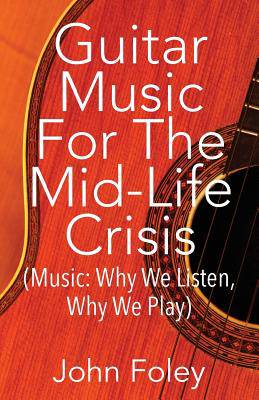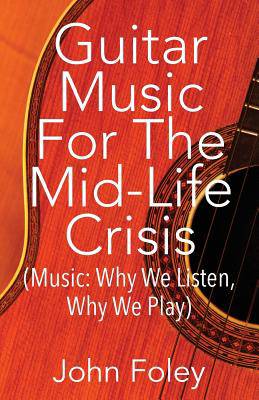
- Afhalen na 1 uur in een winkel met voorraad
- Gratis thuislevering in België vanaf € 30
- Ruim aanbod met 7 miljoen producten
- Afhalen na 1 uur in een winkel met voorraad
- Gratis thuislevering in België vanaf € 30
- Ruim aanbod met 7 miljoen producten
Zoeken
Guitar Music for the Mid-Life Crisis
(Music: Why We Listen, Why We Play)
John Foley
Paperback | Engels
€ 27,45
+ 54 punten
Omschrijving
John Foley is a musician and Music Therapist who has performed across the US and Canada. After years of Rock & Roll bands he began working as accompanist for Oscar Brand, sharing stages with Pete Seeger, Arlo Guthrie, Odetta, Richie Havens and many others. Recordings include Rock & Roll, Folk songs, children's music and educational programming for the Smithsonian Institute, the BBC and The Canadian Broadcasting Co. "Somewhere in my late 50s I realized that I was losing interest in music. After forty-some years as a fan, would-be player, student, musician, performer and teacher, I realized that I just didn't care much anymore. Worse yet, it didn't seem to bother me. I had played and listened to music because I wanted to and needed to. Now I mostly played when I had to and wasn't listening with any particular interest. Ironically, I was working as a Music Therapist, using music to try and improve the lives of people with everything from Autism to Alzheimer's Disease. If music worked for them, why didn't it work for me? When the phrase, "Physician, heal thyself", is quoted in the New Testament, it's cited as a "proverb", meaning it was already an old notion two thousand years ago. "Musician, heal thyself" was almost the title of this book. When we try to fix something, it helps to know how it worked when it was working properly. I was going to have to start at the beginning." "Bruce Springsteen once wrote, "I swear I found the Secret to the Universe / in the engine of an old parked car". Well, I didn't do that but I did look into an old comic drinking song and found the ancient roots of a major religious belief system. And I realized that, from a neurological standpoint, playing music is the closest you can get to tickling yourself. You may have seen someone crunch Wint-O-Green LifeSaver candies in a dark room to produce sparks but you might not know how that phenomenon can apply to amplifying guitars." " There's a story h
Specificaties
Betrokkenen
- Auteur(s):
- Uitgeverij:
Inhoud
- Aantal bladzijden:
- 324
- Taal:
- Engels
Eigenschappen
- Productcode (EAN):
- 9781478736059
- Verschijningsdatum:
- 20/08/2015
- Uitvoering:
- Paperback
- Formaat:
- Trade paperback (VS)
- Afmetingen:
- 140 mm x 216 mm
- Gewicht:
- 412 g

Alleen bij Standaard Boekhandel
+ 54 punten op je klantenkaart van Standaard Boekhandel
Beoordelingen
We publiceren alleen reviews die voldoen aan de voorwaarden voor reviews. Bekijk onze voorwaarden voor reviews.







